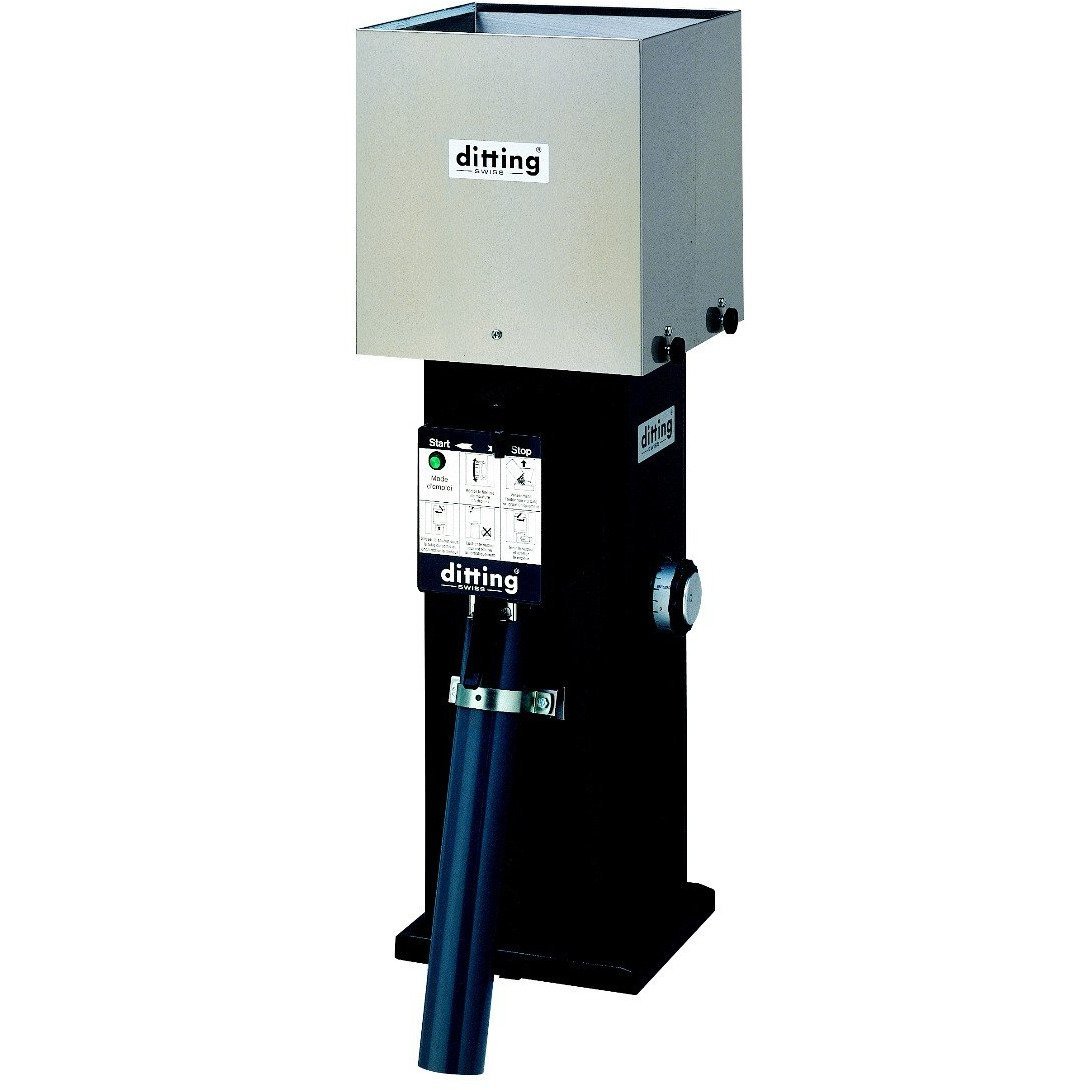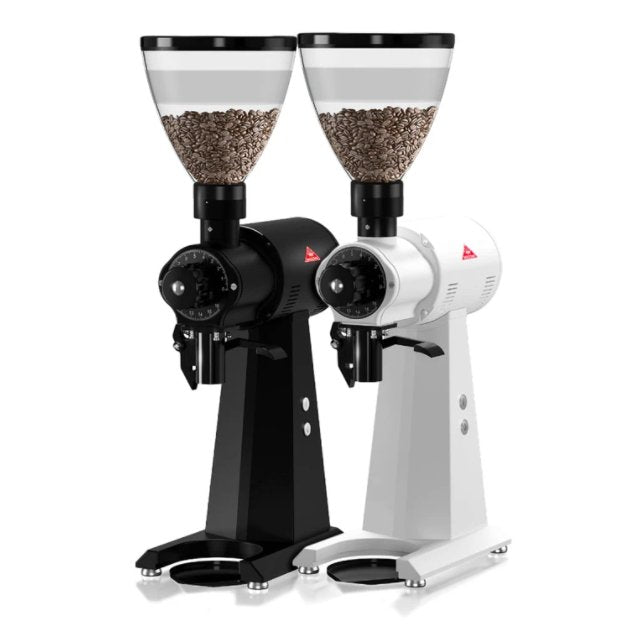Industrial Coffee Grinder: Important Qualities to Consider When Shopping
Industrial Coffee Grinder: Important Qualities to Consider When Shopping
Blog Article
Industrial Coffee Mill Guide: Increase Efficiency and Top Quality
In the affordable landscape of coffee production, choosing the best commercial coffee grinder plays a crucial duty in improving both effectiveness and item high quality. Recognizing the subtleties of different mill kinds and vital features-- such as adjustable work settings and robust building-- can significantly affect the last flavor profile of the coffee.
Comprehending Mill Types
When choosing a commercial coffee grinder, comprehending the different kinds available is critical for optimizing both flavor removal and functional efficiency. The two primary sorts of mills are blade grinders and burr grinders. Blade mills make use of sharp blades that slice coffee beans right into irregular sizes, causing unequal extraction and possibly undesirable flavors. While blade grinders are commonly much more budget friendly and suitable for small-scale procedures, they are normally not recommended for industrial usage.

Ultimately, picking the right kind of grinder is essential to maintaining high quality and efficiency in coffee production, making it vital for organizations to buy premium burr mills for ideal results.
Key Attributes to Think About
Selecting an industrial coffee mill needs cautious consideration of several key attributes that can dramatically influence both performance and the general coffee experience. Among the main facets to examine is the grinding mechanism. Burr mills are typically liked over blade mills, as they give a consistent work dimension, which is vital for ideal extraction and taste.
Another crucial attribute is the grinder's capacity. Depending on the volume of coffee you require to procedure, pick a model that can handle your requirements without giving up rate or quality. Furthermore, consider the work settings used. A versatile mill with several settings enables you to tailor the work dimension to various developing techniques, improving the coffee's flavor profile.
Assess the grinder's noise level, specifically in a hectic café or production setting, where excessive sound can be turbulent. Spending in a mill that stabilizes these features can significantly improve both functional efficiency and the high quality of the coffee served.
Optimizing Grinding Process
To accomplish the ideal cause coffee preparation, enhancing the grinding procedure is essential. The grind size considerably influences extraction, flavor, and general high quality of the brewed coffee. Various developing approaches require certain grind dimensions; for instance, coffee demands a fine work, while French press requires a rugged structure. Recognizing the relationship in between grind dimension and brewing method is the initial step in optimization.


Additionally, checking the grinding rate can enhance the process. Slower grinding typically creates less heat, maintaining fragile flavors and scents. Alternatively, quicker grinding might produce extreme heat, negatively influencing the coffee's quality.
Maintenance and Treatment Tips
Proper upkeep and treatment of industrial coffee mills are crucial for ensuring ideal performance and long life. Regular cleansing is the structure of upkeep; deposit accumulation can impact flavor and grinding efficiency. It is recommended to clean up the grinder after each usage, cleaning down the outside and getting rid of any type of coffee premises from the burrs.
Furthermore, inspect the grinding burrs for deterioration. find out this here Dull burrs can compromise grind consistency, so they must be changed as necessary. Industrial Coffee Grinder. Occasionally adjusting the grinder is additionally essential, as this keeps the preferred work size for different brewing methods
Lubrication of moving components should be done according to the supplier's specifications, as this minimizes rubbing and lengthens the life of the devices. It is vital to use food-grade lubricating substances to make sure safety and security and conformity with health laws.
Lastly, keep the mill in a completely dry and steady setting to stop corrosion and rust. By sticking to these upkeep and care ideas, drivers can enhance the performance of their commercial coffee grinders while making certain high-quality outcome and prolonged functional life.
Roi Analysis
Evaluating the return on financial investment (ROI) for commercial coffee mills is important for services seeking to enhance their coffee production abilities. A thorough ROI analysis helps establish the financial feasibility of investing in premium mills, allowing companies to consider the preliminary prices versus possible gains.
Assess the purchase cost of see this here the mill, including setup and any type of necessary modifications to existing facilities. High-performance grinders usually lead to reduced grinding time and increased throughput, which can considerably boost efficiency.
In addition, consider the effect on product top quality. Industrial Coffee Grinder. Superior mills yield a more constant grind dimension, which can boost flavor accounts and customer contentment, eventually driving sales. By raising the high quality of the end product, businesses can justify higher prices, bring about enhanced income
Verdict
In summary, an industrial coffee grinder plays a critical duty in enhancing both effectiveness and item quality within coffee production. By selecting high-quality burr grinders geared up with vital attributes such as adjustable grind settings and durable building and construction, companies can ensure optimal taste removal. In addition, routine maintenance is vital for maintaining mill efficiency and maximizing customer satisfaction. Ultimately, the strategic financial investment in a reputable mill contributes considerably to enhanced profits and competitiveness in the coffee industry.
In the affordable landscape of coffee manufacturing, picking the ideal commercial coffee grinder plays a crucial duty in boosting both performance and item high quality. The 2 main kinds of grinders are blade mills and burr mills. Within the burr grinder group, there are flat this article burr grinders and cone-shaped burr mills, each with its advantages. Burr grinders are normally favored over blade mills, as they give a regular work dimension, which is crucial for ideal extraction and taste.
In recap, a commercial coffee mill plays a pivotal duty in enhancing both performance and item quality within coffee manufacturing.
Report this page